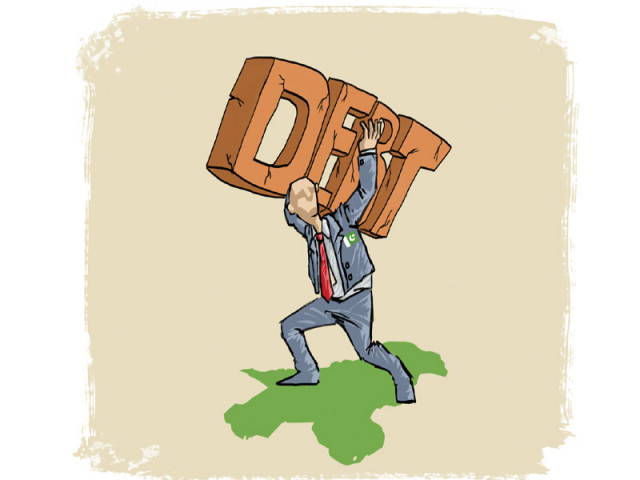Pakistan’s debt dilemma
The real problem for our economy is not just the size of our debt but the repayments to creditors

ILLUSTRATION: JAMAL KHURSHID
Also, our imports continue to increase not just for machinery and parts required for developmental projects but also in the categories of food items and auto vehicles. Exports however are suffering since the rupee’s appreciating value is making Pakistani products less competitive at international levels. In order to curb this balance of payments difference, the State Bank of Pakistan has recently introduced regulatory measures to discourage imports of consumer goods. By and large, as the situation stands, experts foresee Pakistan’s debt requirements increasing further in the coming years. It is predicted that the government will opt for another IMF bailout plan around the upcoming 2018 general election. For the previously completed bailout package, our government took short-sighted measures to fulfill the IMF’s requirements. For example, introducing more indirect taxes to raise funds rather than actually attempting to increase the tax net. Therefore, although the statistic of Rs115,000 may not mean much since the average Pakistani does not actually have to pay it, we are already paying for our government’s follies in a variety of different ways.
Published in The Express Tribune, February 27th, 2017.
Like Opinion & Editorial on Facebook, follow @ETOpEd on Twitter to receive all updates on all our daily pieces.














COMMENTS
Comments are moderated and generally will be posted if they are on-topic and not abusive.
For more information, please see our Comments FAQ